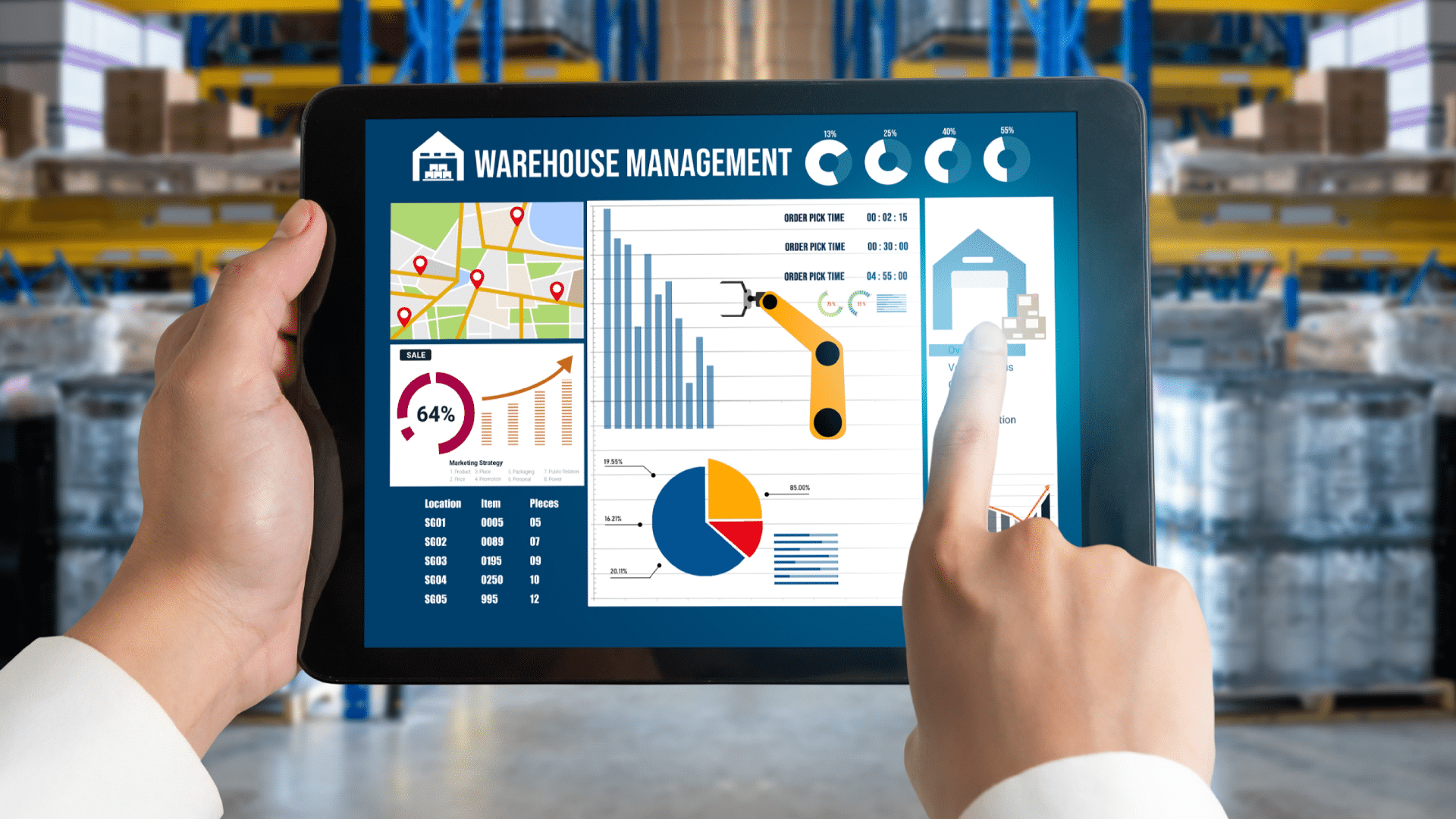If you’re selling in-store, online, and through marketplaces like Amazon, keeping track of stock in real time can be a nightmare without the right tools. That’s where multichannel inventory management comes in — it allows you to centralize inventory tracking across all your sales channels.
In this article, we’ll explain what multichannel inventory management is, its key benefits, the challenges involved, and how to choose the best software to simplify your operations. Whether you’re a liquor store owner or a fashion retailer, this guide will help you manage inventory like a pro.
? Key Takeaways:
- Multichannel inventory management lets businesses track inventory across various sales channels (in-store, online, etc.) from one centralized system.
- It improves stock accuracy, reduces costs, and makes managing inventory across locations a breeze, leading to faster order fulfillment and better customer experiences.
- Using multichannel inventory management software like KORONA POS helps businesses automate processes, integrate with different platforms, and scale efficiently.
What Is Multichannel Inventory Management?
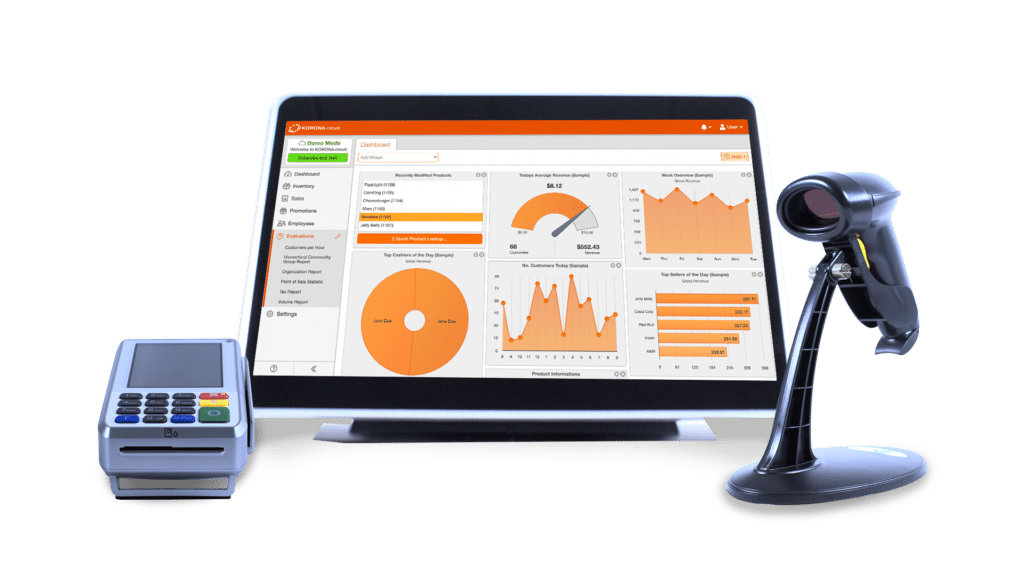
Multichannel inventory management is the process of tracking and managing inventory across multiple sales channels and locations. This system enables businesses to efficiently manage stock levels, orders, and fulfillment processes across e-commerce websites, brick-and-mortar stores, online marketplaces, and social media.
Key aspects of multichannel inventory management include:
- Real-time synchronization of inventory data across all channels
- Centralized inventory control to prevent overselling or stockouts
- Automated order routing and fulfillment
- Demand forecasting and replenishment planning
- Integration with warehouse management systems
What’s the Difference Between Omnichannel vs. Multichannel?
- Multichannel means selling your product or service through different platforms, such as your website, social media, online marketplaces, or physical stores. However, these platforms often operate independently of one another.
- Omnichannel integrates a business’s platforms—website, social media, and stores—to provide customers a seamless and consistent experience across all touchpoints, whether online or in person.
Key Benefits of Multichannel Inventory Management
Multichannel inventory systems are game-changers for efficiency, scalability, and customer service, especially for multi-store retail businesses. Here’s how:
Improved stock accuracy
Centralized systems reduce human error by automatically syncing inventory levels across all platforms. No more accidental oversells or backorders.
Enhanced customer experience
Customers can shop when and where they want—and receive products promptly. Fulfillment accuracy increases trust and loyalty.
Optimized inventory levels
Multichannel systems help you maintain optimal stock levels by syncing all data in one place. You can track demand trends across platforms and order more efficiently.
Reduced operational costs
Less manual work means fewer human errors. Automated reordering and consolidated reporting also help save on labor and storage costs.
Improved decision-making
Analytics from multichannel inventory systems provide insights on top-selling products, seasonal trends, and channel-specific performance.
Faster order fulfillment
With synced inventory, orders are processed and shipped faster, especially when linked to third-party logistics providers or warehouse management tools.
Scalability and flexibility
As your business grows, multichannel systems enable you to easily add new sales channels and manage them from a single dashboard.
PRO TIP!
Choose a system with built-in automation and low-latency syncs for lighting-fast updates across all channels.
The Process for Managing Inventory Across Multiple Channels
Multichannel inventory management isn’t just about technology—it’s also about having the right process in place. Here’s how to do it:
Step 1: Centralize inventory data
Use a system that aggregates inventory from all channels in real time. This can be a retail management system, an inventory management system, or a POS system that does it all, like KORONA POS.
Step 2: Integrate sales platforms
Connect your POS, eCommerce sites, and marketplaces through a unified platform.
Step 3: Automate stock updates
Automatically update inventory quantities when purchases or returns are made.
Step 4: Standardize SKUs and product data
Ensure consistent product names, descriptions, and SKUs across all channels.
Step 5: Monitor and reconcile frequently
Perform regular inventory audits and use reporting tools to catch discrepancies and reconcile your inventory early.
PRO TIP!
Run weekly mini-audits for high-volume SKUs to keep your numbers tight and reduce surprises.
Challenges of Managing Multi-Channel Inventory
Managing stock across multiple channels isn’t easy—especially without the right system in place. The following inventory management challenges often result in costly mistakes.
Data inconsistencies
Manual data entry or poor integrations between systems can lead to mismatched stock levels, double entries, or missed updates.
Delayed updates
When sales aren’t synced in real-time, it can cause overselling, leading to canceled orders and unhappy customers.
Complex returns
Every channel might have its own return process, making it harder to track incoming products and update inventory accordingly.
PRO TIP!
Make sure your POS software allows for real-time syncing across all channels to minimize lag.
When It’s Time to Use Multichannel Inventory (Example)
Let’s say your retail business starts as a small brick-and-mortar operation, but then you expand to Shopify, Amazon, and a second store location. Suddenly, your spreadsheet can’t keep up with syncing inventory across platforms.
That’s when you need multichannel inventory software. It automates syncing, handles returns, and provides data you can trust.
If you own a retail business and you’re looking for a better POS software, get a custom demo from us.
Speak with a product specialist and learn how KORONA POS can power your business.
Businesses That Need Multichannel Inventory
While particularly valuable for retail, multichannel inventory management applications extend to any business managing inventory across multiple sales channels. Here are some key business types that can leverage this approach:
Business Type | Why They Need It |
Liquor and wine stores | Track high-value inventory across in-store and online sales |
Smoke, tobacco, & vape shops | Handle fast-moving, regulated products with real-time syncing |
CBD stores | Maintain compliance and accurate reporting across all channels |
Fashion retailers | Avoid size/color stockouts and manage seasonal inventory changes |
Electronics/gadget stores | Sync product availability and manage returns from multiple platforms |
Liquor and Wine Stores
Liquor and wine stores often sell products, including rare vintages and seasonal offerings. These businesses also deal with various SKUs, each with unique attributes like vintage, region, and alcohol content.
Multichannel inventory management software for these stores is included in a liquor store POS system or winery POS software. Such software helps these stores maintain accurate stock levels across physical locations, online stores, and marketplaces like Amazon or Drizly.
Smoke, Tobacco, and Vape Shops
These shops often operate physical stores, online platforms, and potentially wholesale divisions.
The right smoke shop POS system will maintain accurate records of age-restricted products across all channels and compliance with local laws. It will also aids in managing the diverse inventory of e-liquids, devices, and accessories, each with varying shelf lives and popularity.
CBD Stores
The right CBD POS system accurately tracks different CBD products, including oils, edibles, and topicals, each with specific potency and expiration dates. It also facilitates compliance with changing regulations by maintaining detailed product information and ensuring proper labeling across all channels.
The multichannel software should also be able to integrate with the correct CBD payment processing, ensuring that your funds are not withheld from your business account.
Fashion Retailers
Fashion businesses face seasonality, changing trends, and diverse product options. The system enables efficient inventory management across stores, eCommerce, and marketplaces, preventing stockouts and overselling during promotions.
Fashion retailers can also use the data to identify trending items across different channels and adjust their inventory accordingly.
Electronics & Gadget Stores
Electronics stores often have a high turnover of products, with new models frequently replacing older ones. Multichannel inventory management enables these stores to manage inventory across physical locations, e-commerce sites, and platforms such as eBay or Amazon.
A Case Study in Multichannel Inventory Success
Bakeréé, a boutique dispensary in Chicago, uses KORONA POS to manage inventory across its storefront and online shop. Before switching systems, mismatched stock levels and slow manual updates caused frequent errors.
With KORONA’s multichannel inventory tools, Bakeréé now syncs stock in real-time, speeding up order fulfillment and reducing stock discrepancies. The result? Smoother operations and happier customers.
Inventory management a headache?
KORONA POS makes stock control easy. Automate tasks, generate custom reports, and learn how you can start improving your business.
Best Software for Multichannel Inventory Management
Curious about what multichannel inventory management software to choose? Here’s what we recommend, from POS systems to inventory-specific software:
KORONA POS
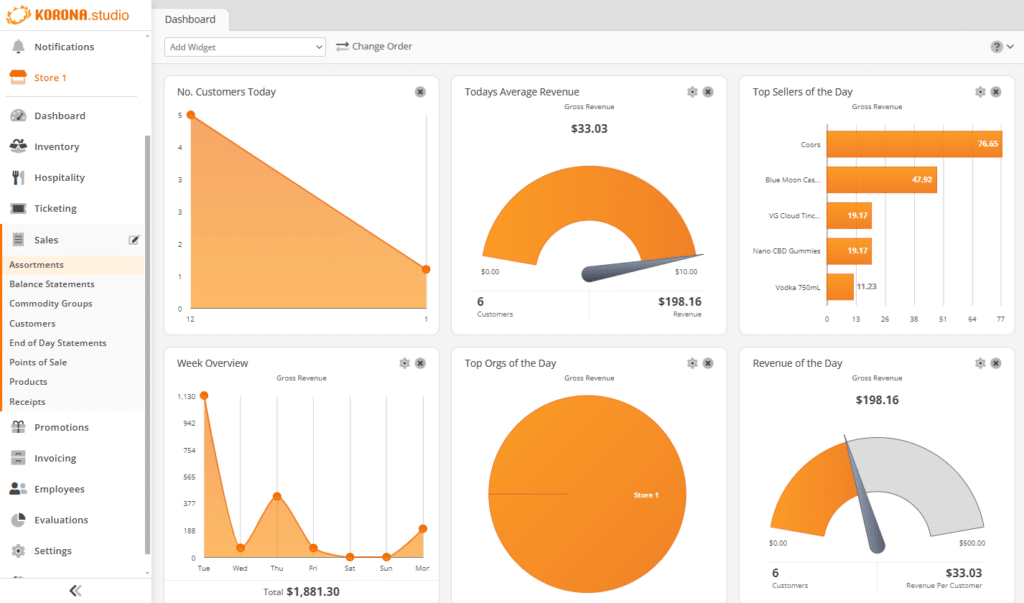
KORONA POS is one of the best inventory management software for small businesses. It offers advanced inventory tools designed for multichannel retailers, including real-time syncing, automated reporting, custom reorder levels, and integrations with leading eCommerce platforms.
Zoho Inventory
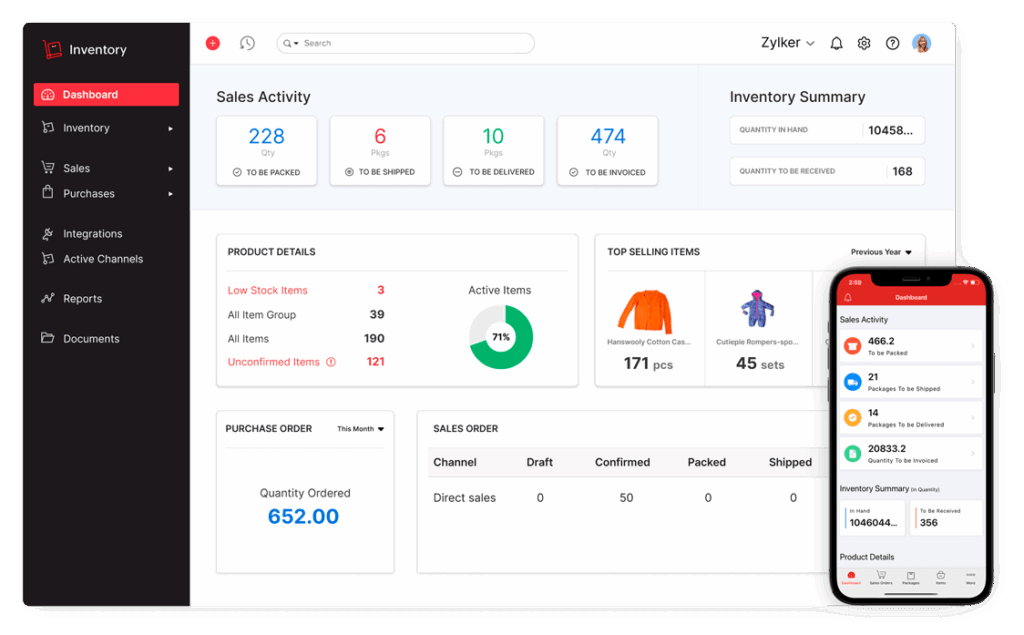
Zoho Inventory is a cloud-based solution that supports order and inventory management across multiple online marketplaces and storefronts. It offers real-time updates, barcode scanning, and customizable reports.
Cin7

Cin7 provides a fully integrated inventory and POS system that syncs with major eCommerce platforms like Shopify, Amazon, and Walmart. It includes automation tools and warehouse management features.
Linnworks
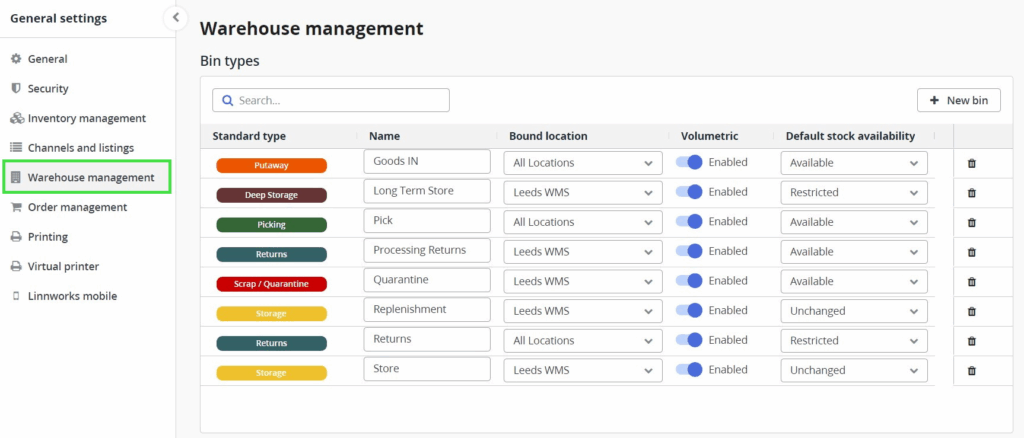
Linnworks helps retailers automate inventory and order management across multiple sales channels, with integrations for marketplaces and shipping platforms.
How to Choose the Best Multichannel Inventory Management Software
Let’s learn more about what inventory management entails and explore key factors to consider when making your choice for multichannel management:
Automation
Look for a system that automates inventory tasks like stock updates, order syncing, and low inventory alerts to reduce manual errors and labor costs.
Ease of use
A clean interface with intuitive workflows makes adoption smoother for your team.
Analytics
Strong reporting tools help you identify best-selling products, slow movers, and channel-specific trends.
Integrations
Ensure the software connects seamlessly with your POS, eCommerce, accounting, and shipping tools.
Do you have trouble getting your POS customer service on the phone?
KORONA POS offers 24/7 phone, chat, and email support. Call us now at 833.200.0213 to see for yourself.
Simplify Inventory Management with KORONA POS
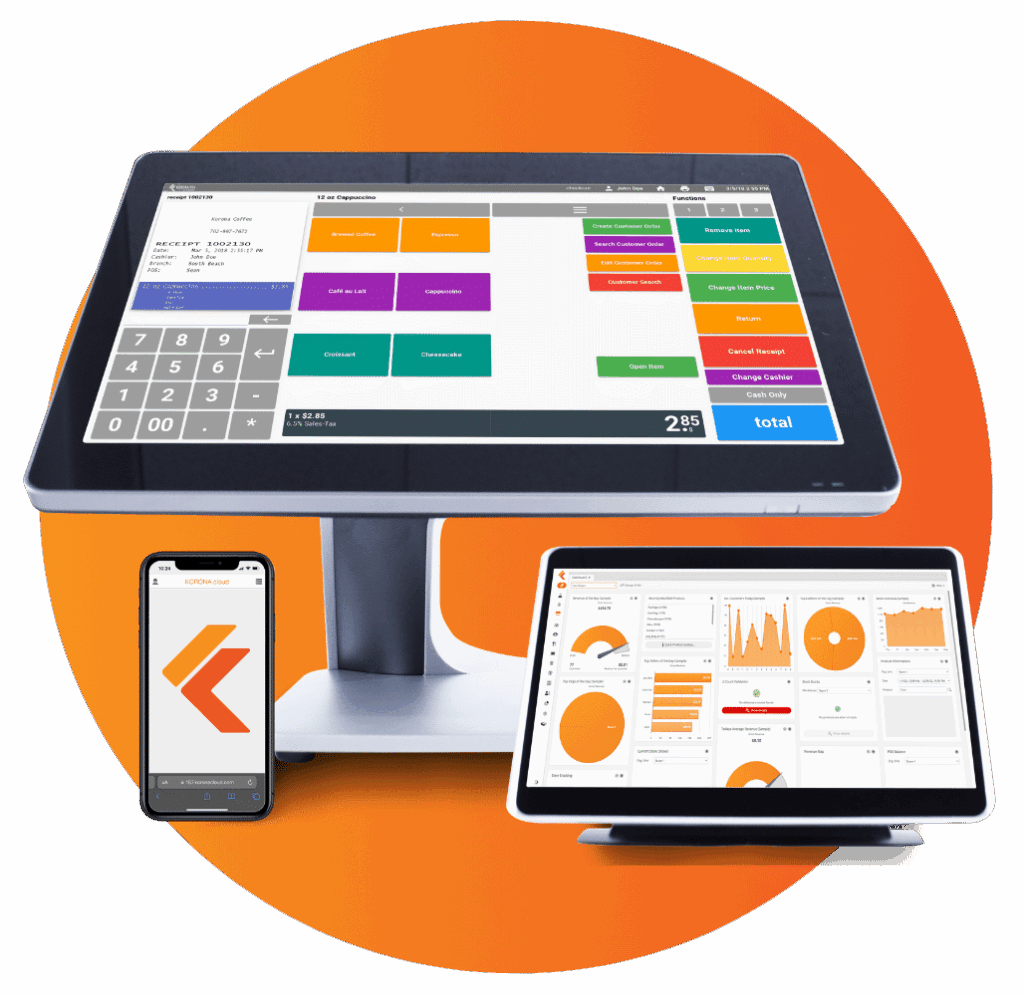
Managing inventory across multiple sales channels doesn’t have to be a headache. KORONA POS gives you real-time visibility, intuitive tools, and centralized control to keep your inventory accurate and your customers happy. Whether you run a brick-and-mortar shop, an online store, or both, KORONA helps you stay ahead of demand and eliminate costly stock issues.
Ready to simplify your inventory and grow with confidence? Get started with KORONA POS and experience smarter multichannel inventory management.

